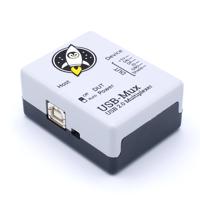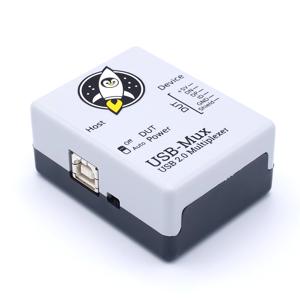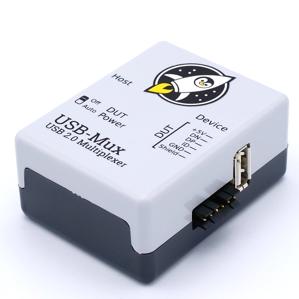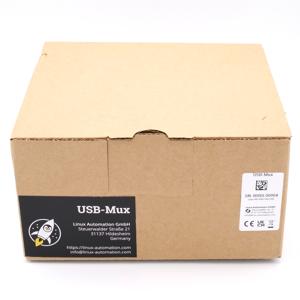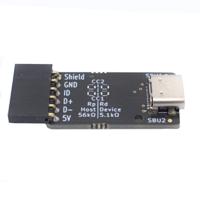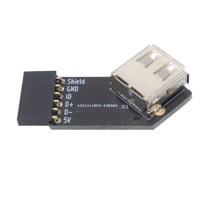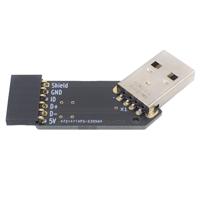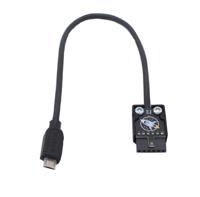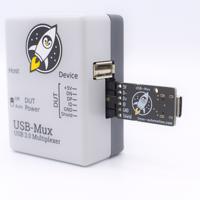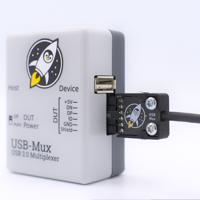USB-Mux
The USB-Mux is a tool to support the development of embedded Linux devices. The USB-Mux has three USB 2.0 ports, all serving different purposes:
- The Host port is used as a control interface that allows our Python-based host tool to control the USB-Mux.
- The Device port is used to connect USB devices like flash drives to the USB-Mux.
- The DUT port is used to connect your device under test. It allows the device itself to act as an USB-host or USB-device, allowing automatic testing of USB OTG functionality.
The USB-Mux uses analog switches and power transistors to create connections between its various ports. It allows workflows like connecting your host to the device port to write data to a connected flash drive before connecting the DUT to the device port to boot from said drive. Or it allows you to connect your DUT to the host port to test the DUT in its device role.
The USB-Mux is already well integrated into the labgrid framework, allowing you to start automating tests on USB devices right when your order arrives.
Included accessories
The USB-Mux comes with a set of adapters that can be used to directly connect a DUT using a standard USB cable. The universal plug with 2.54mm pitch on the USB-Mux also allows the simple production of own cables:
A special feature of the Micro USB cable is, that the ID pin can be controlled from the USB-Mux. Thus the OTG function of the DUT can be tested.
Our Commitment to Quality
This device is manufactured in Germany. Each device is put into operation and tested by hand by Linux Automation.


